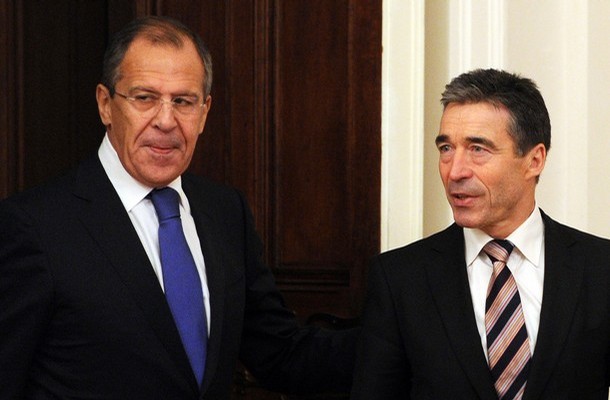
From Steven Erlanger, the New York Times: NATO’s secretary general expects two headlines out of this month’s annual summit meeting in Lisbon: an agreement to build an alliance-wide missile defense system, and NATO’s own “reset” with Russia , whose president has accepted an invitation to the meeting and says Moscow will explore cooperation on missile defense.
NATO is still negotiating key points in a new strategic doctrine, its first since 1999, to be published in Lisbon.
These issues include nuclear disarmament, which divides France and Germany, and the alliance’s relationship with the European Union, which gets tangled up, as always, in the complications of Cyprus, Greece and Turkey.
And there is the equally problematic issue of missile defense, starting with the basic rationale for having such a thing. The alliance’s secretary general, Anders Fogh Rasmussen, a former Danish prime minister, was reluctant in an interview in his newly remodeled office here (Danish modern, with an Oval Office-like carpet with the NATO seal) to specify where such a missile threat might come from.
“More than 30 countries in the world have missile technology, and some of them can hit targets in allied territory,” he said. …
Asked what he would tell anxious Georgians about the “reset” with Russia, Mr. Rasmussen said that the alliance would not recognize the independence, autonomy or annexation of the two provinces, Abkhazia and South Ossetia; that it continues to respect Georgia’s sovereignty and territorial integrity; and that NATO would keep its promise to some day admit both Georgia and Ukraine.
He argued that a closer alliance relationship with Russia would help Georgia regain its territory, saying, “I do believe that an improved relationship between NATO and Russia is the best chance to ensure peaceful solutions to such disputes.”
Many Georgians and East Europeans, however, do not believe Russia will ever cede the two provinces or come to see NATO as a partner.
Asked about planning to defend all NATO members, including the Baltic nations and Poland, which had previously been left unclear, Mr. Rasmussen said carefully: “We never go into details about our military plan. But I can assure you, and that goes for all allies, that we have the necessary plans in place to defend them against any threats.” (photo: Getty)
Image: getty%2011%203%2010%20Anders%20Fogh%20Rasmussen%20Sergei%20Lavrov.jpg
